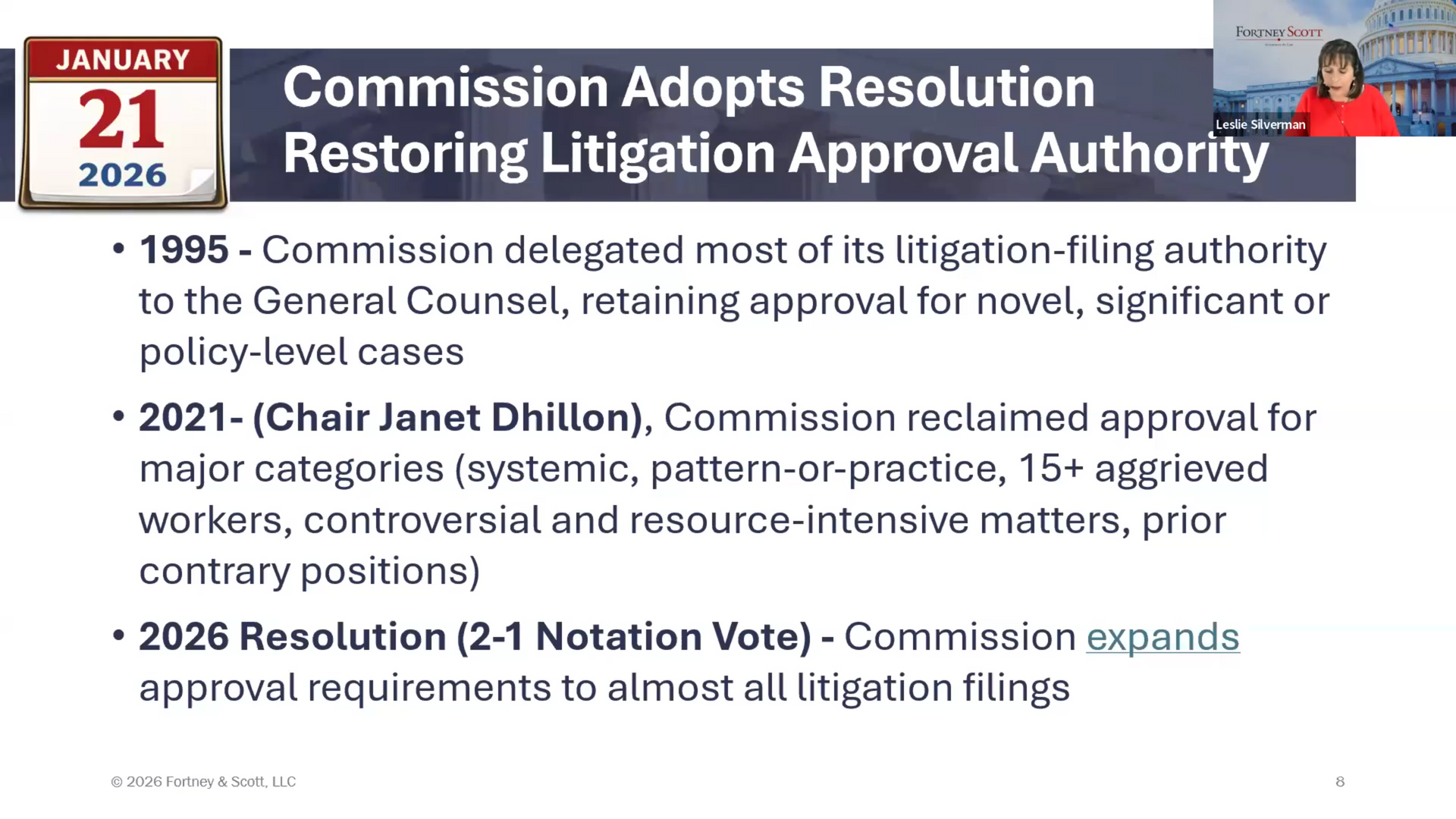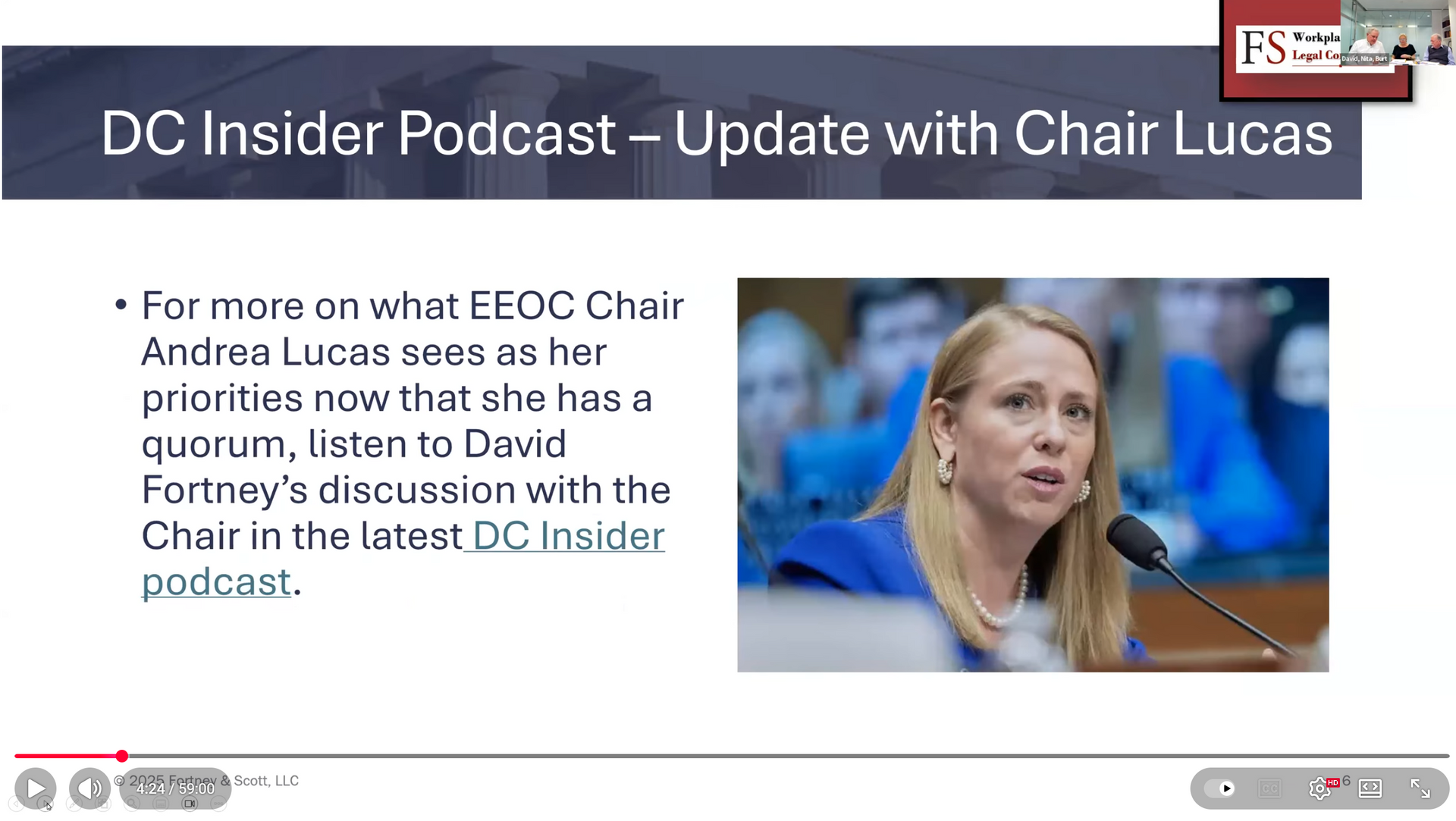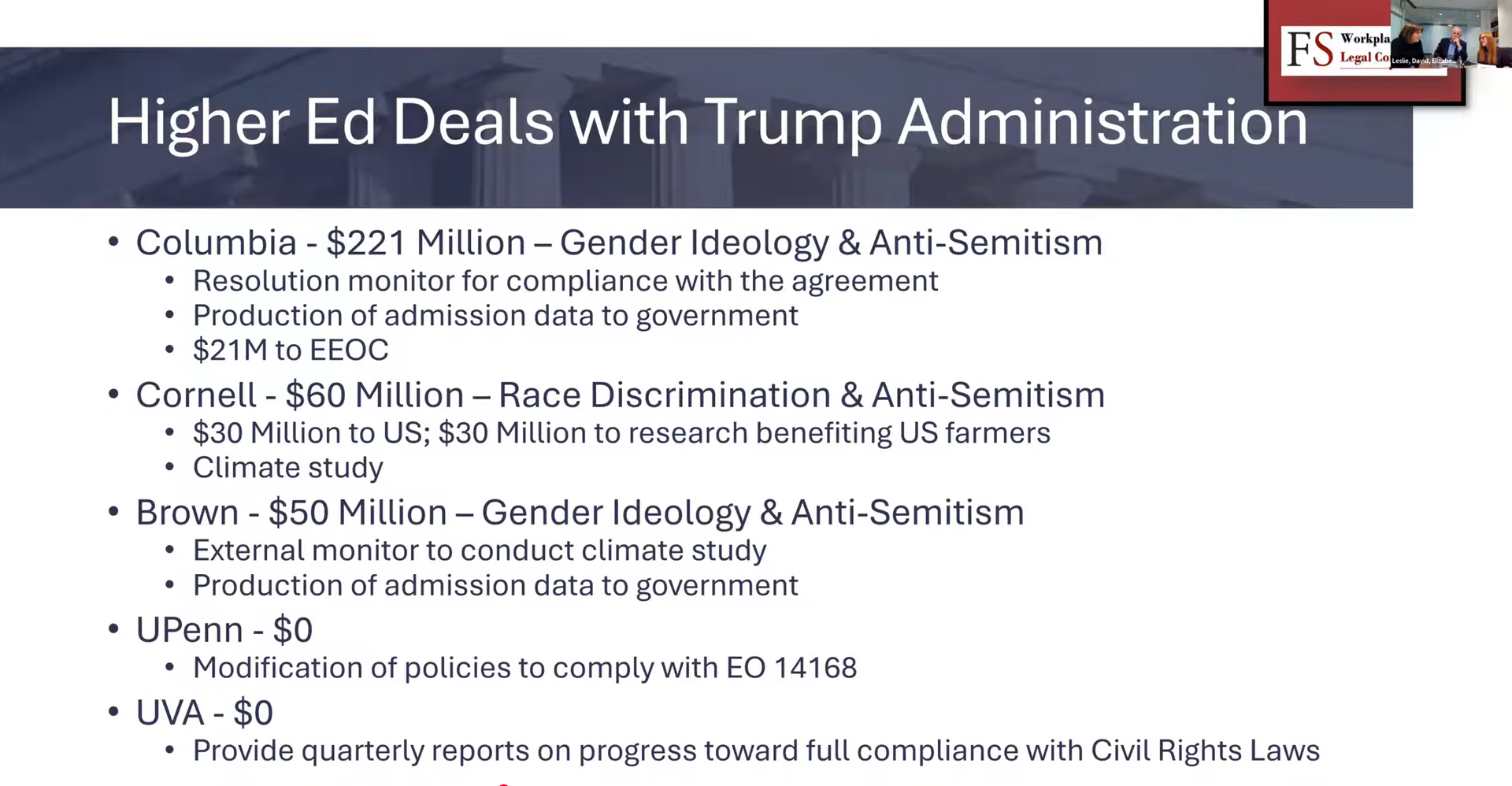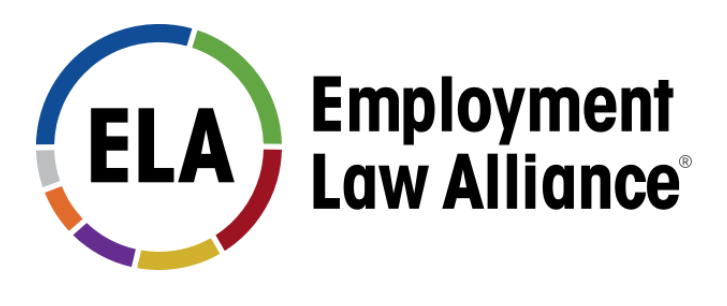OFCCP AAP Verification Program Approved by OMB FortneyScott Verification Tool to Assist Contractors Available
OVERVIEW: Federal contractors will be required to file annual verifications on compliance with the Federal contractor affirmative action program obligations that are enforced by the U.S. Department of Labor’s Office of Federal Contract Compliance Programs (OFCCP). The verifications will be submitted through a web-based portal on OFCCP’s website. The submission portal also is expected to be used for contractors to submit their affirmative action programs to OFCCP during audits.
WHAT MUST BE VERIFIED: On August 31, 2021, the Office of Management and Budget (OMB) through its Office of Information and Regulatory Affairs (OIRA) approved OFCCP’s Affirmative Action Program Verification Interface. The verification program requires federal contractors to certify as true one of the following questions for each of its establishments:
- It has developed and maintained affirmative action programs at each establishment, as applicable. See 41 CFR Chapter 60. Note that the obligation is to verify compliance with all requirements of the regulations, which includes the preparation of Affirmative Action Plans, and a wide range of record keeping, workforce analytics, and notifications that are included in the affirmative action program obligations.
- It has been party to a qualifying federal contract or subcontract for 120 days or more and has not developed and maintained applicable affirmative action programs at each establishment, as applicable. See 41 CFR Chapter 60.
- It became a covered federal contractor or subcontractor within the past 120 days and therefore has not yet developed applicable affirmative action programs. See 41 CFR Chapter 60.
VERIFICATION PROCESS: The verification program will allow employers to certify for all their establishments at one time, which is a significant improvement from the original proposal that required separate verifications for each establishment. The refusal to supply the required verification or the submission of false or misleading information may result in the institution of administrative or judicial enforcement proceedings. The two user guides approved by OMB provide step-by-step details of how federal contractors are to use their Affirmative Action Program Verification Interface (AAP-VI). According to the Federal Contractor User Guide, the AAP-VI will also become the “primary source for entering, tracking and submitting your Affirmative Action Programs for review by OFCCP”.
OPEN ISSUES: Although federal contractors and OFCCP have been anticipating the approval of the AAP-VI since January, there are many questions that have not yet been answered, such as by when contractors will be required to certify and when the subsequent annual certification will be required. Initially, OFCCP stated that contractors would be given 90 days to certify once the AAP-VI was approved; however, we understand that contractors may be given a minimum of180-days to certify. We also understand that contractors can expect agency training for contractors and agency staff and a Help Desk to provide compliance assistance on AAP-VI access and certification. OFCCP has already established a landing page for AAP-VI but has not yet provided any additional information.
FS TOOL AVAILABLE TO ASSIST CONTRACTORS MEET NEXT STEPS: FortneyScott has developed a tool to assist contractors in accurately verifying their legal compliance with the OFCCP’s regulations — see FortneyScott's Legal Check for OFCCP VerificationTM.
FortneyScott attorneys will continue to monitor developments and update you as soon as OFCCP issues any additional information. Feel free to reach out to any of the FortneyScott attorneys with questions.
Issued: 9/1/2021


















